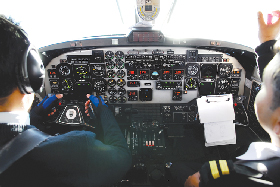 According to a US study, routine adoption of safety practices used by aircrew may help reduce surgical mortality. In 2006, a training program focusing on checklists and team-work was implemented at 74 surgical facilities in the Veterans Health Administration. Theatre staff (anaesthetists, nurses, technicians and surgeons) all attended the training together, which included strategies such as routine preoperative briefings and postoperative debriefings, challenging each other when identifying safety risks, recognising red flags and stepping back to reassess a situation. The training also facilitated more open communication in theatre and encouraged all team members to speak up if they had a safety concern. Facilities participating in the program experienced an 18% reduction in annual patient mortality (RR, 0.82; 95% CI, 0.76-0.91; P = 0.01) compared with a 7% decrease among the 34 facilities that had not yet undergone training (RR, 0.93; 95% CI, 0.80-1.06; P = 0.59).
According to a US study, routine adoption of safety practices used by aircrew may help reduce surgical mortality. In 2006, a training program focusing on checklists and team-work was implemented at 74 surgical facilities in the Veterans Health Administration. Theatre staff (anaesthetists, nurses, technicians and surgeons) all attended the training together, which included strategies such as routine preoperative briefings and postoperative debriefings, challenging each other when identifying safety risks, recognising red flags and stepping back to reassess a situation. The training also facilitated more open communication in theatre and encouraged all team members to speak up if they had a safety concern. Facilities participating in the program experienced an 18% reduction in annual patient mortality (RR, 0.82; 95% CI, 0.76-0.91; P = 0.01) compared with a 7% decrease among the 34 facilities that had not yet undergone training (RR, 0.93; 95% CI, 0.80-1.06; P = 0.59).
Connect
Advertisement
In Other Journals
Med J Aust 2010; 193 (10) || doi: 10.5694/j.1326-5377.2010.tb04077.x
Published online: 15 November 2010
Published online: 15 November 2010
The full article is accessible to AMA
Correspondence:
Online responses are no longer available. Please refer to our instructions for authors page for more information.
Advertisement




